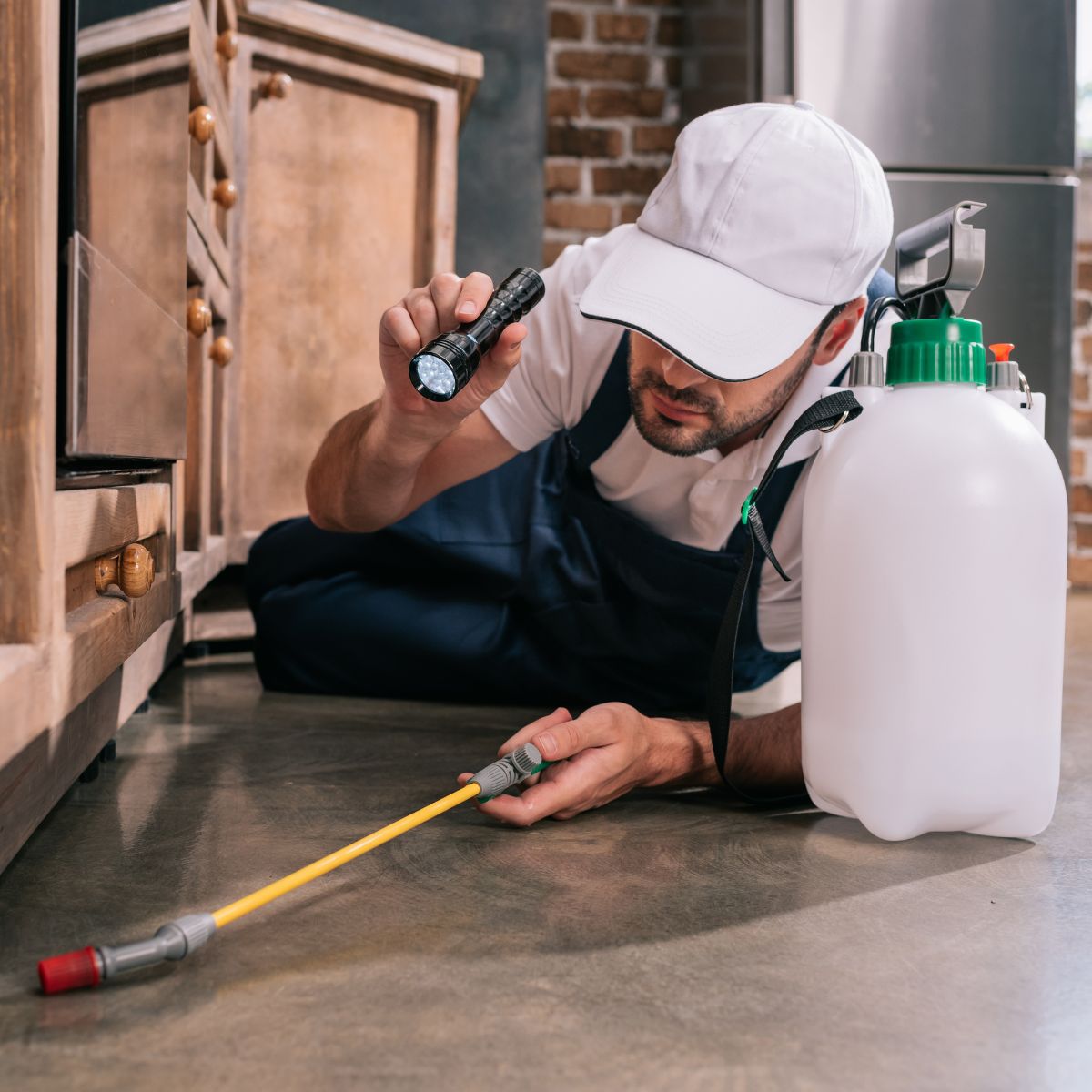Say Goodbye to Pests: Pest Control Clovis Specialists at Your Solution
Say Goodbye to Pests: Pest Control Clovis Specialists at Your Solution
Blog Article
Recognizing the Various Techniques to Pest Control: A Comprehensive Overview

All-natural Bug Control Approaches
Using environment-friendly methods such as friend planting and biological parasite control is essential for effectively handling bugs in farming setups. Friend growing involves growing different crops in closeness to hinder parasites, improve nutrient uptake, and enhance total crop health.
Biological parasite control involves introducing natural predators or microorganisms to manage pest populations. Ladybugs, for circumstances, eat aphids, controlling their numbers without the need for chemical pesticides. An additional instance is the use of Bacillus thuringiensis (Bt), a germs that targets details insect parasites while being safe to people, animals, and helpful pests.
These eco-friendly techniques not only reduce the reliance on synthetic pesticides but also aid maintain biodiversity and dirt wellness. By integrating all-natural insect control strategies into farming practices, farmers can accomplish lasting pest administration while lessening negative effect on the setting.

Chemical Parasite Control Solutions
Along with natural insect control approaches, the application of chemical pest control services plays a substantial duty in effectively handling pest populations in agricultural atmospheres. Chemical parasite control remedies are formulated to target particular bugs that might create considerable damages to crops. These solutions frequently consist of artificial chemicals that are made to get rid of parasites promptly and successfully.
Among the key advantages of chemical pest control solutions is their effectiveness in controlling insect invasions widespread. Farmers can use these solutions using different approaches such as splashing, airing out, or seed therapy to protect their plants from unsafe pests, weeds, and conditions. Furthermore, chemical insect control solutions are reasonably very easy to use and can supply fast results, assisting farmers protect their yields and minimize financial losses.
Nonetheless, it is important to use chemical parasite control options judiciously to decrease prospective negative influence on the atmosphere, non-target microorganisms, and human health and wellness. Proper application strategies, adherence to security standards, and routine monitoring are critical to make sure the responsible use chemical insect control remedies in farming practices.
Organic Pest Control Approaches
Organic parasite control approaches take advantage of natural predators or pathogens to handle insect populations in agricultural setups successfully. One typical organic control strategy is the introduction of natural adversaries, such as ladybugs or parasitical wasps, to target certain pests.
Another organic control technique involves utilizing pathogens like infections, fungi, or bacteria to contaminate and kill parasites. Generally, biological bug control techniques provide a lasting and targeted option to pest management in farming.
Integrated Insect Management (IPM)
Integrated Parasite Administration (IPM) is an extensive approach that incorporates various bug control strategies to properly handle and minimize pest populations in farming systems. IPM concentrates on long-term avoidance of pests with a mix of biological, cultural, physical, and chemical control approaches. By integrating these various approaches, IPM aims to reduce dependence on chemical pesticides, reduce ecological impact, and advertise lasting pest administration techniques.
One key element of IPM is using organic controls such as all-natural killers, parasites, and microorganisms to manage insect populaces. This approach utilizes the power of nature to preserve an equilibrium between bugs and their natural opponents without causing damage to the atmosphere.
Furthermore, IPM entails social practices like crop environment, turning, and hygiene control to produce undesirable conditions for bugs and disrupt their life cycles. Physical controls such as composts, barriers, and traps are also utilized to avoid pest problems.
Mechanical and Physical Pest Control Strategies
Making use of non-chemical techniques, such as mechanical and physical insect control techniques, is a vital element of detailed insect management strategies, building on the structure of Integrated Bug Administration's holistic strategy. Mechanical bug control includes using physical obstacles or traps to stop parasites from accessing and damaging plants or frameworks. This technique can consist of methods like installing displays on windows, making use of row covers in agriculture, or using sticky traps over here to capture bugs.
Physical pest control techniques, on the other hand, emphasis on directly getting rid of pests via physical means. Utilizing heat therapies to eradicate bed insects or vacuuming up parasites like ants or crawlers can be efficient means to manage problems without the use of chemicals. By including these mechanical and physical bug control techniques into an Integrated Bug Management plan, people and experts web link can minimize reliance on chemicals while still efficiently lessening and taking care of pest populations damage.
Conclusion

In addition to all-natural insect control methods, the application of chemical bug control services plays a substantial function in effectively taking care of pest populations in farming atmospheres.One of the key benefits of chemical pest control remedies is their efficiency in regulating insect infestations on a huge scale.Integrated Bug Management (IPM) is a thorough method that incorporates various parasite control techniques to properly manage and official statement lessen pest populations in agricultural systems.Making use of non-chemical methods, such as physical and mechanical pest control methods, is an essential facet of comprehensive insect monitoring strategies, developing upon the structure of Integrated Pest Administration's all natural approach. By integrating these physical and mechanical pest control methods right into an Integrated Pest Administration strategy, people and professionals can reduce reliance on chemicals while still properly minimizing and handling pest populaces damages.
Report this page